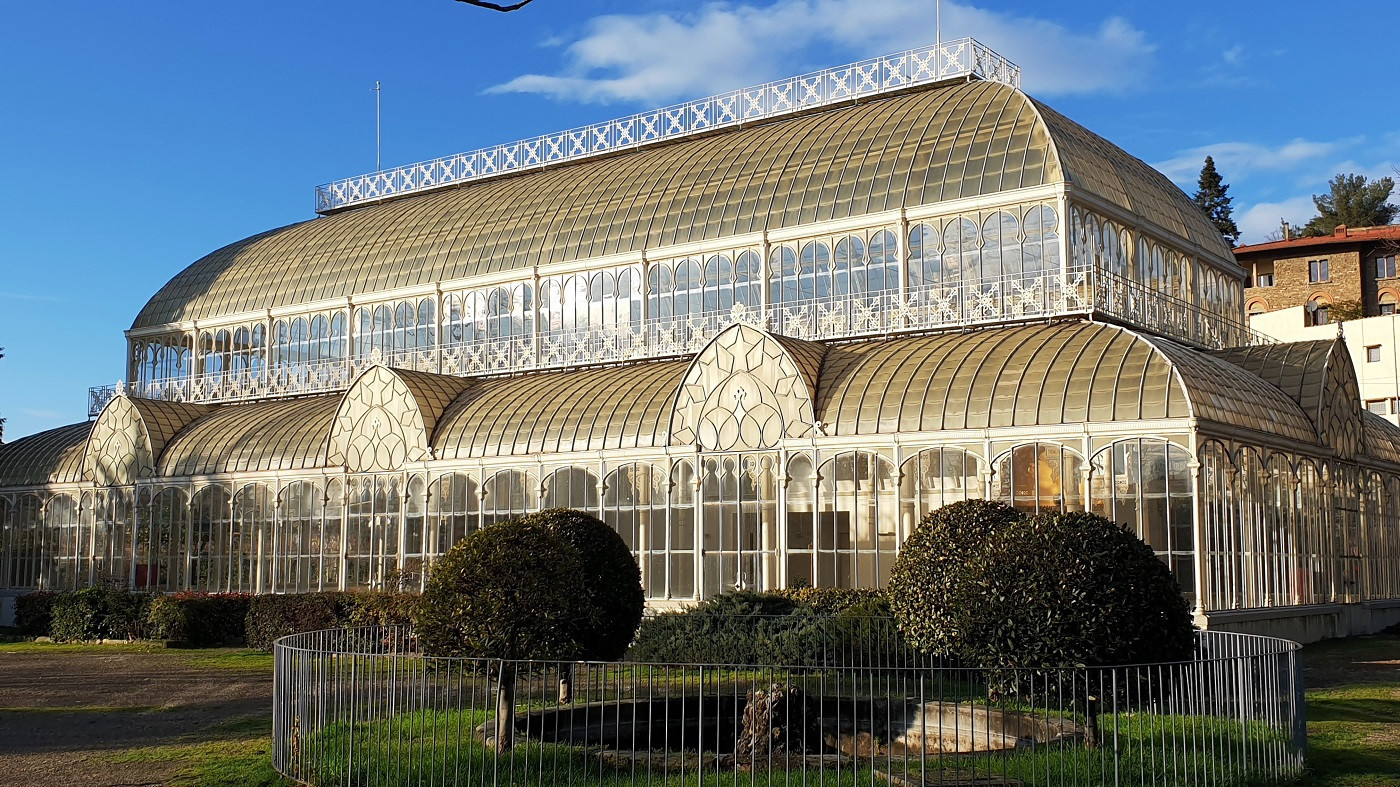
Beyond Renaissance in Florence - The Art Nouveau Greenhouse by Giacomo Roster
The Orticoltura Garden was established for
botanical scientific experiments in 1859 by the Georgofili Academy, an
association founded in 1753, in the Enlightenment climate, for the study of
agricultural techniques. Vineyards, fruit trees, vegetables and eccentric and
rare ornamental plants were planted in the area. In 1876 the whole park was
renovated to be able to host international exhibitions of floriculture, techniques
and agricultural tools. For this reason it was decided to build a large Art
Nouveau-style heated greenhouse, in iron, cast iron and glass (called then
tepidarium or winter garden).
The architect Giacomo Roster (1837 - 1905) was
commissioned for this project. At time time he was working with Giuseppe Poggi in the urban
restructuring that changed the face of the city for "Firenze
Capitale" (1864 -1870) in the second half of the 19th century. Roster collaborated in particular on the renovation of the ring road avenues, Piazza Beccaria, Viale dei Colli,
Piazzale Galileo and on the layout of the Bobolino park with the municipal
greenhouses.
Building the tepidarium proved to be very demanding: it involved 9700 pieces and 8 tons of iron, on an area of 650 square meters and 17 meters
high. It was the largest greenhouse in Italy, inaugurated in 1880 and
immediately called the "Crystal Palace".
Unlike other greenhouses, from the start this was conceived to be used not only to house plants, but also as a venue
for musical and artistic exhibitions. The park, acquired by the Municipality
of Florence in 1930 and then opened to the public, has also been used
to host weddings and ceremonies in recent years.
Entrance to the garden is from via Bolognese and via Vittorio Emanuele.
Enterior of the tepidarium during an exhibition.
Copy of a poster of a "Horticultural
Exhibition" of May 1903, which also included a special pavilion for the
"Colonia Eritrea" (back then Italy was a colonial empire!)
Early 1900s poster announcing for a
"Festival of art and flowers", announcing the representations of
"Fotografia Animata col Cinematografo dei Fr.lli Luigi and Augusto Lumière
”! It cost 1 lira.



